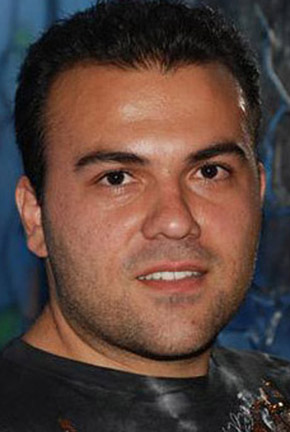
BOISE, Idaho (BP) — Pastor Saeed Abedini is reluctant to question the purpose of $400 million in foreign currency the Obama administration paid to Iran during a prison swap that secured Abedini’s release from an Iranian prison in January.
 Instead, Abedini is concerned that Iran continues to persecute Christian converts there, has initiated active legal cases against about 1,000 members of the church he founded, and has executed at least two prisoners he led to Christianity during his three-and-a-half year captivity, Abedini told Baptist Press.
Instead, Abedini is concerned that Iran continues to persecute Christian converts there, has initiated active legal cases against about 1,000 members of the church he founded, and has executed at least two prisoners he led to Christianity during his three-and-a-half year captivity, Abedini told Baptist Press.
“I’m very grateful because I’m free, but there are still some Americans that have been left behind,” Abedini told BP Aug. 4. “After this deal the human rights situation got worse in Iran. Some of my friends in prison two nights ago got execution and they hanged them up in prison, which I know them personally.”
The Obama administration secured the release of Abedini and three other Americans Jan. 16 in a prisoner exchange while implementing a 2015 multinational nuclear arms deal with Iran.
At issue is a $400 million payment the U.S. made to Iran in concert with the implementation of the nuclear deal and about the same time as the hostage release. In an Aug. 4 press conference, Obama denied media claims that the payment was a ransom for the hostages’ release, and claims that knowledge of the payment had been withheld from the public.
The Wall Street Journal reported in an article updated Aug. 3, “Wooden pallets stacked with euros, Swiss francs and other currencies were flown into Iran on an unmarked cargo plane,” crediting unnamed congressional staff and U.S. and European officials as sources. “The U.S. procured the money from the central banks of the Netherlands and Switzerland, they said.”
As to whether the payment was ransom, Abedini told BP, “I prefer … the politicians answer that, because so many things are involved and those who were in charge, they know better than me. Generally, I’m so grateful that I’m free.”
During his transfer from Iran to Germany on the night of Jan. 15, Iranian officials told Abedini he would not be taken to Germany until a plane arrived from Switzerland, Abedini told BP, a plane he now presumes contained money from the U.S. government.
As early as Jan. 17, U.S. Secretary of State John Kerry issued a press release explaining that Iran would be paid a total of $1.7 billion to settle “a long outstanding claim at the Iran-U.S. Claims Tribunal in the Hague,” Media Matters for America reported Aug. 4, refuting media speculation and accusations that the payment was an illegal ransom made in secret. Kerry’s press release, titled “Hague Claims Tribunal Settlement,” is archived on the secretary of state’s website at www.state.gov/secretary/remarks/2016/01/251338.htm.
“This specific claim was in the amount of a $400 million Trust Fund used by Iran to purchase military equipment from the United States prior to the break in diplomatic ties,” the press release reads. “In 1981, with the reaching of the Algiers Accords and the creation of the Iran-U.S. Claims Tribunal, Iran filed a claim for these funds, tying them up in litigation at the Tribunal…. In constructive bilateral discussions, we arrived at a fair settlement to this claim, which due to litigation risk, remains in the best interests of the United States.”
Abedini had been serving an eight-year prison sentence because of his Christian faith. He had been sentenced Jan. 27, 2013 on charges he threatened national security by planting house churches in Iran years earlier, and had been under house arrest since July 2012.
Human rights are limited in Iran, Abedini said, with Christians, Muslims, atheists and gays persecuted.
“My own church that I started [in Iran] they arrested 1,000 of my church members,” Abedini said of the Iranian government, “and all of them they have open cases which they have been going through … interrogation … and they are under government watch. So they can’t do anything. If they just send me an email, they are going to be arrested and put to jail.”
Abedini continues to advocate for human rights and religious freedom in particular.
“I think as Christians we are responsible for our brothers and sisters in persecuted countries. I believe in the Bible verse that says if we know what is good and we don’t do that, it’s sin. And if we can do something for them and we don’t do that, it’s sin,” he said, alluding to James 4:17. “I think we need to advocate for them. We need to push our politicians, like people did for me. My last letter from prison has been read by … people all around the world, and a million people push government of United States to do something. And they did it, now I’m free.”
With God’s help, Christians have power to improve the lives of the persecuted, Abedini said.
“We need to use this potential that we have for our brothers and sisters in persecuted countries,” he said. “My situation shows to the whole world that by pushing our leaders and by pushing our countries … we can do something great. We can make prisoners free. We can bring religious freedom in other countries.”
















